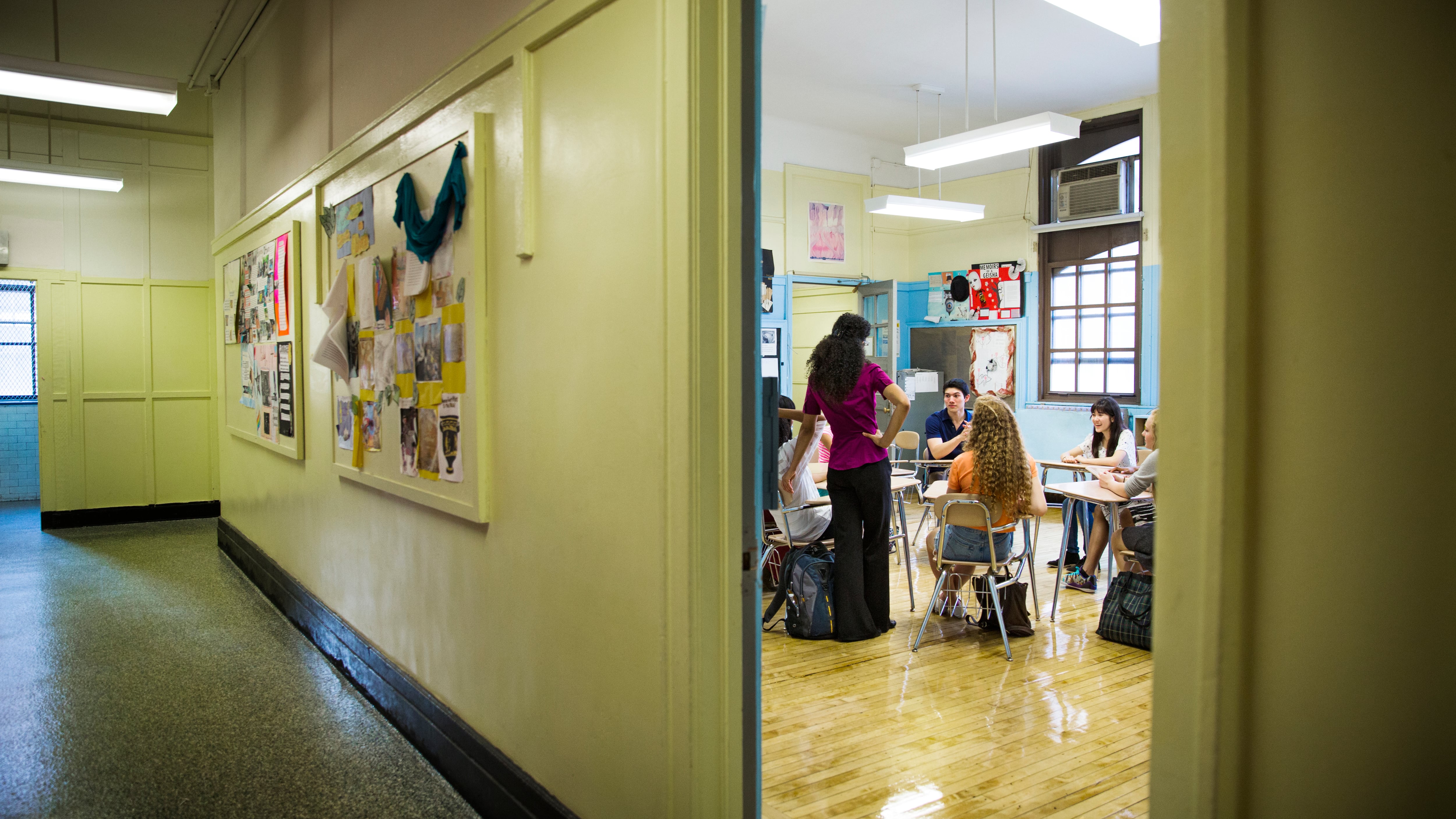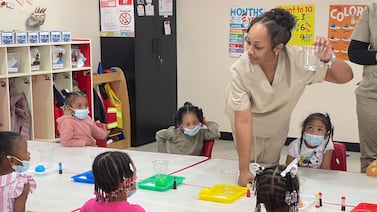Sign up for Chalkbeat Newark’s free newsletter to keep up with the city’s public school system.
More than half of Newark’s public schools are no longer designated as underperforming or in need of support following a state review of high-poverty schools.
This year, 20 Newark schools moved out of state designations for schools in need of support due to low student performance, among other criteria. Among those were Weequahic High School and Rafael Hernandez Elementary School. Both exited one of the lowest designations given to schools in need of recurring support, according to Superintendent Roger León, who announced the school designations during a board meeting last month.
The schools joined a list of more than 30 other schools that did not receive a designation this year.
Although an improvement over past years, the district remains under the state’s average graduation rate and proficiency scores on standardized tests. Seven Newark schools continue to need state support to raise student achievement next school year.
The district’s goal is to have the number of state-supported schools range from “small to zero,” said León during the meeting.
Under the Every Student Succeeds Act, known by its acronym ESSA, New Jersey must ensure that all students have access to a high quality and equitable education. The federal guidelines set minimum requirements around measuring and reporting school performance and require states to identify the lowest performing schools.
Schools in need of assistance receive federal funds meant to help raise the performance of the lowest-achieving students. High-poverty schools also can be identified as needing additional support through the Title I program. All Newark schools qualify for Title I.
New Jersey considers a variety of factors when identifying schools in need of support, including academic achievement, academic growth for elementary and middle schools, high school graduation rates, English language proficiency, and chronic absenteeism. The state then designates a score.
Last year, the state analyzed data from the 2018-19 and 2021-22 school years and identified 25 Newark public schools in need of support. The state required the district to write an action plan and engage the community to help identify and tackle school challenges.
Become a Chalkbeat sponsor
This year, seven schools entered a new state status or remained under the same designation, a significant shift from last year’s state review. During this year’s review, the state analyzed 2022-23 school year data – a time when Newark Public Schools’ state test scores went up 2 percentage points in both math and English language arts, pointing to students’ slow academic recovery post-pandemic.
The pandemic had a devastating effect on student performance and mental health, particularly among Newark’s most vulnerable students, including English language learners and students with disabilities. Third graders’ English language arts scores remained at 19% last spring, prompting concern among advocates who consider that grade a critical year for long-term success.
Two schools – Grover Cleveland and Thirteenth Avenue elementary schools – performed at or below the bottom 5% of Title I schools, which means they will enter “comprehensive status” for the coming year. Last year, Thirteenth Avenue exited that status. High schools enter comprehensive status when they have a graduation rate of 67% or lower.
In the coming year, Barringer High School will move out of “comprehensive II status,” a designation for schools that require intensive support again and didn’t meet the state’s criteria to exit the category. The high school entered “additional targeted status” meaning that a student group at that school is “consistently underperforming.”
Barringer offers a special education program for students with behavior disabilities, and roughly 48% of Barringer students are English learners, according to 2022-23 state fall enrollment data. Natasha Pared, Barringer’s principal, used to lead Rafael Hernandez Elementary school, which moved out of a state designation this year.
“So we have confidence she’ll be able to do the same thing here at Barringer,” said León during the February school board meeting.
Chancellor Avenue and Sussex Avenue elementary schools will continue with “additional targeted status,” while Quitman Street Elementary School and Malcolm X Shabazz High School will continue with “comprehensive II” status.
Quitman offers a bilingual and special education program for students with autism in kindergarten through eighth grade.
Shabazz also offers a special education program for students with behavior disabilities. In recent years, the school has seen declining enrollment, struggles in student performance, and safety challenges. In 2022, Shabazz reported a 64.2% graduation rate, compared to the statewide rate of 90%, according to school performance report data. This fall, it will launch a new bilingual program for ninth and 10th grade students.
In total, 36 schools were not identified for any status and 20 schools exited comprehensive status, according to the state’s review this year. The schools that exited a state designation this year must write a sustainability plan, which details how schools will continue to support student academic achievement.
Jessie Gomez is a reporter for Chalkbeat Newark, covering public education in the city. Contact Jessie at jgomez@chalkbeat.org.






